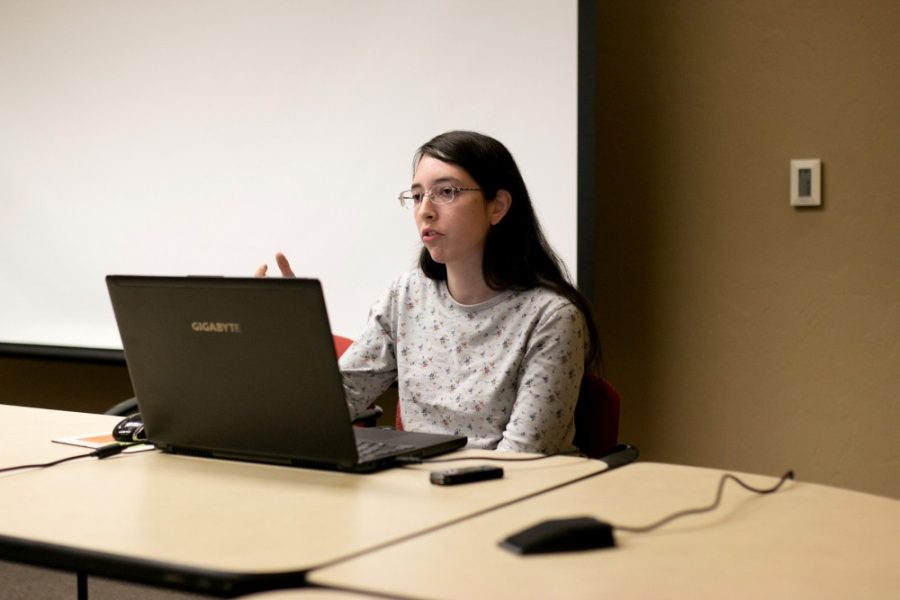The Graduate and Professional Student Council Executive Board voted 3-2 during a closed meeting on Sept. 30 to uphold the decision of the acting elections director to invalidate the online representative election of former GPSC President Zachary Brooks.
The decision denied Brooks a position on the general council after his surprise resignation in response to personality conflicts on the executive board.
GPSC President Jude Udeozor, and executive board members Marquez Johnson and Daniel Kasper, voted to uphold the decision of Chris Hargraves, the acting elections director and senior assistant dean of students. Executive board members Jim Collins and Mariia Khorosheva voted against the decision. Administrative Vice President Jasmine Sears didn’t attend the meeting.
The GPSC Executive Board convened the appeals meeting following Brooks’ appeal of Hargraves’ decision as acting elections director to invalidate the online representative election.
The board dismissed arguments made by Collins, who thought the board couldn’t make an impartial decision due to their personal relationship with Brooks. Collins argued that Brooks was denied his right to due process when both Hargraves and Kasper declined to inform him of the contents of the election complaint before he appealed the invalidation.
RELATED: Former GPSC president’s special election win promptly invalidated due to vote tabulation glitch
Kasper said Hargraves received the complaint before the election ended and declined to name the individual who filed the complaint. The board voted on whether or not Hargraves overstepped his powers when invalidating the online election. The indirect impact on Brooks was irrelevant.
Kasper confirmed the board had no way to determine if any of the votes received by Brooks were illegitimate, but argued Brooks’ victory would always be tainted unless the board conducted a new election.
Collins, believing the reasoning behind this decision by the board was flawed, filed an election complaint to invalidate the March general election and the September special election on the ground the executive board could not verify the legitimacy of votes cast.
Udeozor confirmed there was an election complaint to invalidate the results of the general election conducted in March, and the special election conducted in September was filed in response to an error in the election system that allowed students who hadn’t paid full tuition to vote, a requirement for eligible voters at the time.
Hargraves chose to not invalidate these elections, conducted through the same “tainted” voting system deemed questionable enough to disqualify Brooks, and Collins appealed this decision to the executive board.
“I think it was wrong for the elections director and executive board to invalidate Brooks’ election on such speculative grounds,” Collins said. “Once they did that, in order to be consistent, they would have had to invalidate the elections of all the executive board members.”
RELATED: Future of GPSC up in the air after president resigns
As in Brooks’ case, the board couldn’t substantiate the electoral complaint filed by Collins, who recused himself from the board’s deliberation on the advice of Hargraves. However, they couldn’t be sure voter fraud hadn’t occurred either.
“Our conclusion was that the requirement for an elector to have paid all registration and tuition fees to be eligible to vote, was unconstitutional and the provision contradicts our constitution and mission to serve all graduate students,” Udeozor said.
Since the GPSC board members were elected in the March election, Collins believed they should recuse themselves from overseeing the appeal. The board instead voted to uphold Hargraves’ decision to not invalidate the elections.
“The board applied a different standard to themselves than they did to Brooks,” Collins said after their ruling.
Collins said to allow an election to stand that violates the election code isn’t a remedy to an unconstitutional provision. The general council voted on Oct. 11 to remove these voting requirements from the election code.
Any further appeals this term will be handled by the executive board, Kasper said. Hargraves has proposed having a third body adjudicate election complaints as well as publishing the complaints and the results of their deliberation online to ensure full transparency for the future.
Follow Randall Eck on Twitter.








